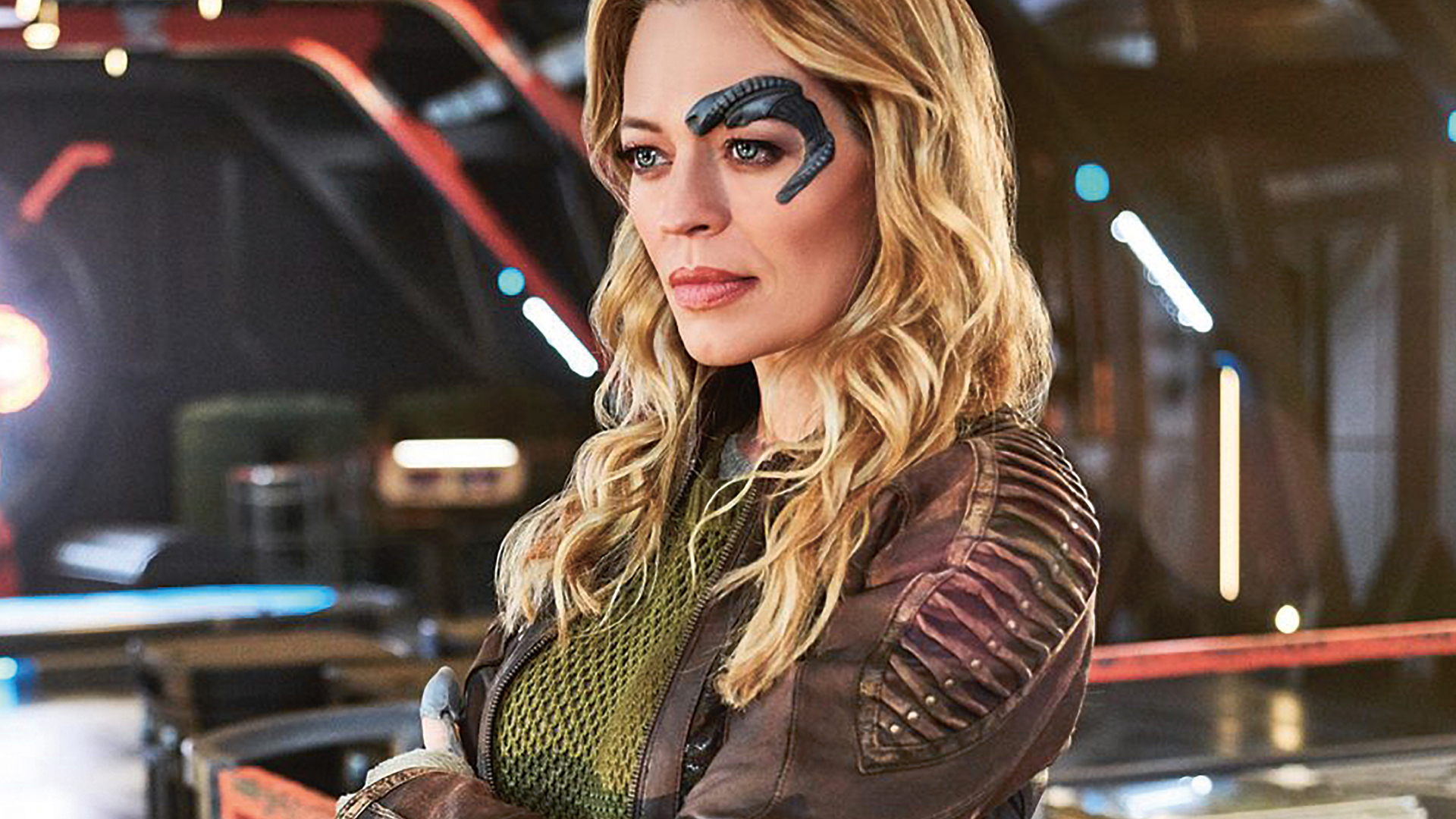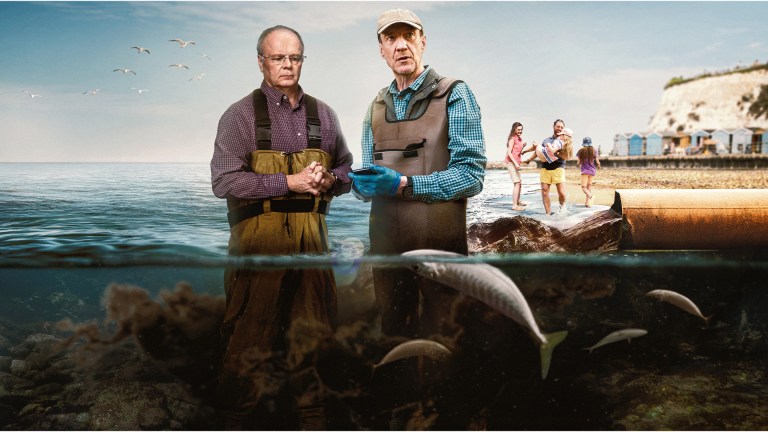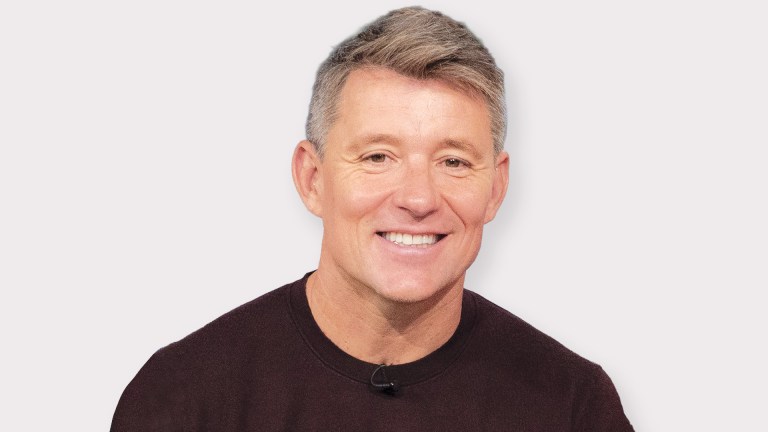“We are all completely connected now. That is very hive mind-ish,” she says. “Certainly the assimilation aspect, where you have the loss of individuality, feels pretty poignant. The scariest thing that makes them so ominous is that complete loss of who you are. That’s terrifying for us.”
The Borg became the biggest baddies of the 24th century and similarly, our inter-connectedness has created an enemy within. Instead of breeding unity it makes it easier for us to attack each other. In that respect, Ryan says, the Borg actually have a more progressive outlook than many of the attitudes plain to see on social media.
“I think if there’s any sort of positive aspect it’s that the Borg actually appreciate and value other species differences. They want to assimilate to make themselves more perfect because perfection is their ultimate goal. And they at least understand that the more differences you can bring together, the more perfect society becomes. They go about it in a really wonky way but that part of them I can appreciate.”
First contact with the Borg (putting aside events in the movie First Contact) came in season two, episode 16 of Star Trek: The Next Generation, broadcast in May 1989. Jesting deity Q propells the Enterprise thousands of light years across the galaxy to warn (and taunt) the crew about a dangerous new threat.
https://www.youtube.com/watch?v=DHzz6Ztcmzc
At this far point they encounter the first Borg cube with the potential to destroy all civilisations in the Federation. Q: “You can’t outrun them, you can’t destroy them… They regenerate and keep coming. Eventually you will weaken. Your reserves will be gone. They are relentless!”
Advertising helps fund Big Issue’s mission to end poverty
This description from over 30 years ago rings will feel desperately familiar to anyone who has fallen victim to online trolls.
The Borg became frequent foes – even assimilating Captain Picard – but more often than not resistance wasn’t completely futile and our heroes usually overcame. When Seven of Nine was introduced to Voyager, the Borg had adapted. Having been infected by a virus by Species 8472, they needed help and Seven of Nine was dispatched as a quasi-Borg ambassador. She was disconnected from the Collective then adopted the archetype role established by Spock and Data in previous series, the character that allows us to see ourselves as others see us.
“It’s a very fine Star Trek tradition,” Ryan says. “Each incarnation of the show has had the character that is on the outside and objectively commenting on humanity.”
There was widespread sentiment – from key cast members too – that Seven was only introduced to make the show appeal to a young male demographic (“Honestly, it didn’t bother me that much to have the costumes like that. She was always an incredibly richly written character. But 20 years later I would like to think it would be a little bit less in your face.) however she quickly became the subject of the most engaging episodes as she wrestled her Borg and human identities.
I wouldn’t have come back if there wasn’t a reason for the character to be there
In the new Star Trek: Picard series, set 20 years down the line, Seven has become a Fenris Ranger trying to uphold order in a galaxy forsaken by a failing Federation.
“I wouldn’t have come back if there wasn’t a reason for the character to be there,” Ryan says. “I said goodbye to her when Voyager ended. Seeing her get back to Earth wasn’t as interesting as her journey getting to that point.”
Advertising helps fund Big Issue’s mission to end poverty
‘Save the outcast, rescue the forgotten,’ is Seven’s new maxim.
“She is an outcast, she was essentially forgotten. She had no family, no home. She definitely feels for the people who have nobody else defending or standing up to them.
“I think humanity at large probably proved a bit of a disappointment to her,” Ryan adds.
Isn’t that always the way – like we’re watching the descent of man?
“Oh my God, yeah. In the last few years especially, constantly.”
Advertising helps fund Big Issue’s mission to end poverty
Star Trek: Picard is exploring the big issues that unites the worst of both today’s and tomorrow’s worlds where we see a massive refugee crisis, worries about artificial intelligence.
“It’s definitely very true to [Star Trek creator] Gene Roddenberry’s original vision for Star Trek, holding up a mirror to society, and showing us where we’re screwing up, and how we could be better. There is a very positive message, ultimately. It’s about hope. That’s what Star Trek has always been about.
“History has never been a direct forward line,” Ryan continues. “We’ve never just developed and gotten better and better. I mean, it’s mind blowing that the Holocaust, the civil rights battle, these things are so recent. You’d think that long ago we’d have developed beyond that and we haven’t. Two steps forward one step back – that’s the way society that has always been.”
One of the appeals of Star Trek was that it celebrated good people tried to do the right thing. Our future could and would be brighter. But all good things end and Picard shows that a stable, civilised society is too fanciful a notion even for a science fiction show.
“It’s never going to be utopia – there’s always a bad egg, there’s always a mistake, it can’t be absolute perfection and it’s always going to be a crooked path to get there,” Ryan says.
So we closer to becoming the Borg than a utopian Federation?
Advertising helps fund Big Issue’s mission to end poverty
“I don’t disagree with that.”
Star Trek: Picard is streaming on Amazon Prime in the UK with new episodes on Fridays









